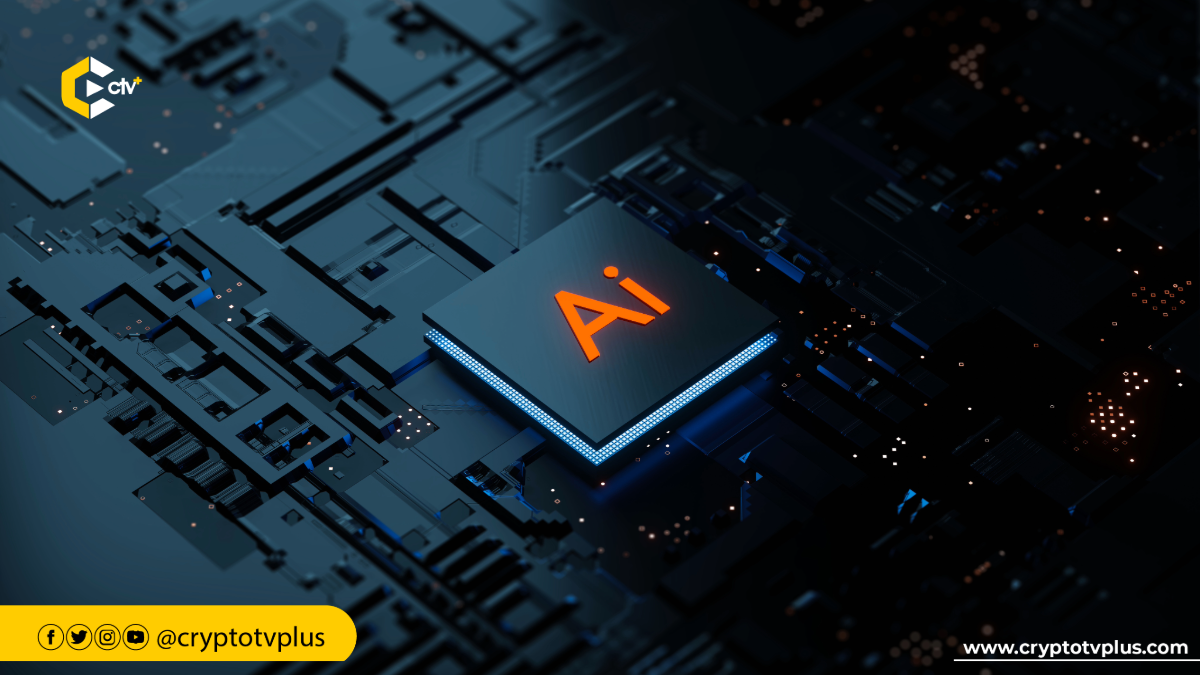News
Polychain Capital CEO on how AI will create the new capitalist world

In a fast-developing world, the fusion of artificial intelligence (AI) with capitalism has the potential to reshape economic structures. As AI advances, it may transform global markets and redefine traditional financial systems, ushering in a new era of economic innovation.
Speaking at Token2049, Olaf Carlson-Wee, CEO of Polychain Capital, a leading cryptocurrency fund, discussed the idea of “Programming Capitalism.” According to him, he envisions AI-driven bots actively engaging in global economies in significant ways.
These AI bots, he predicts, won’t merely handle routine tasks but will become influential in free markets, leveraging blockchain as their operational backbone.
These bots, Carlson-Wee said will maintain “bank accounts” in the form of blockchain wallets, independently making financial choices and drafting contracts, emulating human financial activities.
The core idea is that AI bots [will] need the same tools humans use to engage in capitalism: a system for creating contracts and exchanging money. These AI bots will rely on blockchain technology for their payment and contract system because it is decentralized, trustworthy, and programmable.
This setup would allow bots to conduct transactions, write smart contracts, create new markets, and earn revenue, functioning as autonomous economic agents.
Olaf emphasized that these bots won’t just perform simple tasks; they’ll also create complex financial instruments, such as nth-level derivative markets, which are challenging even for humans to understand. AI bots will be able to navigate and operate in these complex markets due to their advanced computational abilities.
They will also produce creative works—generating music, videos, or art—and monetize this output, fostering competitive environments where the best AI-produced content earns the highest revenue.
Some of these ideas align with current developments in AI, especially in creative fields like OpenAI’s GPT models and generative art, which are already producing sophisticated digital content.
A significant part of Carlson-Wee’s presentation explored the idea that AI bots will fractionalize ownership of themselves. Unlike human entities, where shares are tied to companies or assets, AI bots could directly distribute shares in themselves, creating a form of “self-ICO” (Initial Coin Offering).
People could invest in AI bots as if they were companies. These bots would use the capital to perform specific tasks, such as market trading or providing services, allowing investors to earn a share of the bot’s profits. This concept is similar to the rise of decentralized autonomous organizations (DAOs), where smart contracts and blockchain facilitate decentralized, community-driven decision-making.
More than humans
One intriguing notion that Carlson-Wee talked about is that over time, AI will surpass humans in predicting market trends. These bots will begin with short-term predictions but eventually expand to long-term economic forecasting, which is traditionally handled by human venture capitalists.
The AI’s superior data processing capabilities will allow it to make more accurate predictions, leading to a world where global financial management is handed over to AI—not through force, but because humans will recognize that AI can make better decisions.
His argument ties into ongoing AI research around algorithmic trading and prediction models, such as reinforcement learning (RL). These models, used by AI systems like DeepMind’s AlphaZero, continuously improve by simulating countless economic scenarios, leading to better decision-making over time.
In this context, AI bots could predict financial markets more effectively than human traders by learning from vast amounts of historical and real-time data.
Potential pitfalls
As there are many positives, there are also concerns. Carlson-Wee warns that while AI will significantly enhance market efficiency, it may also lead to unintended social consequences. In the short term, he predicts social media will become a “hellscape,” plagued by AI bots manipulating content and user behavior.
This concern aligns with issues raised in the AI ethics community, where experts worry that AI-driven disinformation campaigns, such as deepfakes or bot-generated social media posts, could undermine trust in online communication.
Currently, AI models are being trained to simulate human interaction at a high level, and it’s easy to envision these models becoming increasingly convincing over time.
Read also: Tether CEO unveils a privacy-focused peer-to-peer AI Kit for all device types
To combat this, Carlson-Wee suggests using blockchain technology to verify whether online content or users are genuinely human or merely bots.
AI, Proof of Humanity, and DAOs
He discussed the concept of a “proof of humanity” system, which blockchain could facilitate by requiring a digital signature to verify an individual’s authenticity.
This idea aligns with existing blockchain research, such as Worldcoin’s “Proof of Personhood,” where users demonstrate their uniqueness through biometrics or other verifiable means to prevent fraud or manipulation.
He further explored how AI bots will interact with decentralized organizations like DAOs. Traditionally, DAOs encounter challenges in forming legal contracts with real-world entities since they operate entirely on-chain (blockchain-based).
Similarly, AI bots won’t easily integrate into traditional legal systems but will interact with DAOs and other blockchain-native entities, unlocking new possibilities for decentralized collaboration.
Carlson-Wee acknowledged the risks of AI dominating capital markets. As AI takes over financial decision-making, humans may voluntarily cede control to these systems because they outperform human investors and managers.
AI researchers like Nick Bostrom have raised similar concerns, warning about the long-term consequences of AI systems that optimize purely for efficiency without considering human values.
This discussion also connects to AI governance debates, where experts consider the extent of power AI systems should have in critical sectors like finance, healthcare, and government.
Olaf’s concept of a “voluntary AI takeover” in capital markets mirrors the broader trend of automation in finance. For instance, hedge funds already utilize AI to manage extensive portfolios, and predictions suggest fully autonomous hedge funds may soon emerge.
As AI continues to outperform human traders, institutions might increasingly depend on AI for financial decisions, much like self-driving cars are expected to eventually replace human drivers.

























2 Comments